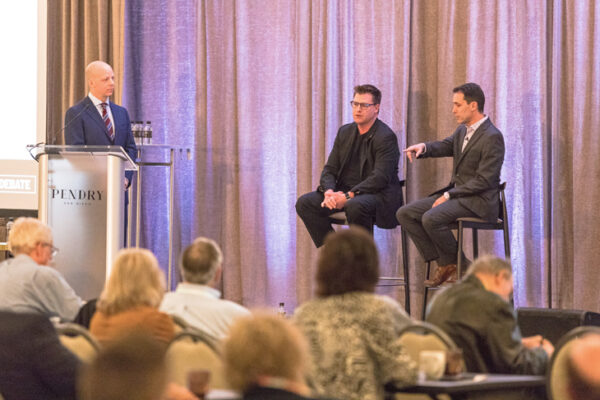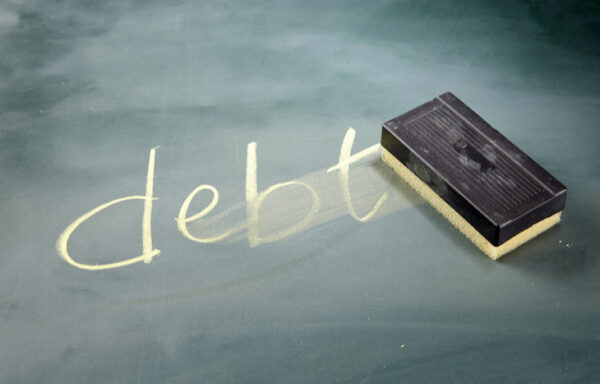The One Crucial Ingredient for Investment Success
- Some people spend every penny they make and live paycheck to paycheck, even as their incomes rise. But there is a growing belief that they are not responsible for their own financial woes.
- Today, Alexander Green explains why the key to wealth creation is responsibility.
As I boarded a plane in New York last week, I noticed the man in front of me was wearing a veterans T-shirt.
On the back it said “It’s not that I could and others couldn’t. It’s that I did and others didn’t.”
Rarely has so much been said with so few words.
That slogan, in fact, can illuminate large swaths of our lives.
For instance, I played the piano as a kid and took lessons seriously as an adult for five years. I still knock around a bit. But I’m not very good.
When people see the piano at my house and ask if I play, I give them a direct answer, one that is not feigned humility: “Not really.”
Like many folks who didn’t stick with an instrument, I often regret it.
It’s not that I didn’t have time to practice regularly. I did. I was just busy doing other things, many of them – truthfully – not nearly as meaningful.
As a teenager, I was a pretty good golfer and played at the No. 1 spot on my high school team. But when I went off to college I got distracted and never played seriously again.
Needless to say, I am no longer a low handicapper. And I sometimes feel a bit envious when I see friends who stuck with the game and now play at a much higher level.
Whose fault is it that I didn’t develop my golf game or become proficient at the piano?
My parents? My wife? My kids? My employers?
The very idea, of course, is ridiculous. I choose how to spend my time, for better or worse. And I have to live with the consequences.
Whenever I admire scratch players or competent musicians, I need to invert that veteran’s T-shirt.
It’s not that they could and I couldn’t. It’s that they did and I didn’t.
With this in mind, let’s take a closer look at the Federal Reserve’s widely publicized “Report on the Economic Well-Being of U.S. Households” that found 40% of American adults would have difficulty covering an unexpected $400 emergency expense.
Why is that?
Some people are unable – mentally, physically or emotionally – to hold a job. Others have had terrible luck, with either their health or other tragic circumstances.
But can that possibly describe 40% of American adults?
Perhaps there is a better explanation.
Like you, I’ve known plenty of friends, family, neighbors and co-workers who were – quite simply – bad with money.
Some of them earned a little. Some of them earned a lot.
But they all had one thing in common. They spent every penny they made – often maxing out their credit cards as well – living paycheck to paycheck, even as their incomes rose.
Yet there is a rising conviction in some quarters – stoked by certain candidates for political gain – that these people are not responsible for their own financial mismanagement.
Somehow society or “the rich” are to blame.
Let’s think about this a minute…
Many of the people I know with no retirement savings live in sizable houses, drive late-model cars, take expensive trips and are surrounded by all the latest electronic gadgets.
The U.S. Department of Agriculture Economic Research Service even points out that Americans now spend more money eating out than eating at home.
In fact, the average family of four spends more than $5,000 a year dining out.
I understand that. People are busy. But, still, it’s a convenience – or a luxury – that comes at a significant cost.
If, for example, that family spent half as much eating out – and did no other belt tightening – they could save $2,500 a year.
That $2,500 a year invested in a plain-vanilla S&P 500 index fund – one that delivers nothing more or less than its long-term average – would turn into $228,733 in 20 years, $652,244 in 30 years and over $1.1 million in 35 years.
And if that money were invested through a Roth IRA, that million dollars would be tax-free as well.
Sure, some households are unable to save $2,500 a year.
But what if they invested $250 a year, less than $25 a month? That would still turn into a retirement account worth more than $100,000, providing some level of financial security.
And the $400 emergency expense? Not a problem.
In sum, nobody but me is responsible for my inferior musicianship and slipshod golf game.
And if I hadn’t been a diligent saver and investor for the last 3 1/2 decades, that would be my bad too.
My question – one for the “Leave a Comment” button below – is this…
If you’ve spent a lifetime developing your marketable skills, working hard, saving regularly and investing smartly, is it really true that you could and others couldn’t?
Or is it that you did and others didn’t?
[adzerk-get-ad zone="245143" size="4"]About Alexander Green
Alexander Green is the Chief Investment Strategist of The Oxford Club, the world’s largest financial fellowship. For 16 years, Alex worked as an investment advisor, research analyst and portfolio manager on Wall Street. After developing his extensive knowledge and achieving financial independence, he retired at the age of 43.
Since then, he has been living “the second half of his life.” He runs The Oxford Communiqué, one of the most highly regarded publications in the industry. He also operates three fast-paced trading services: The Momentum Alert, The Insider Alert and Oxford Microcap Trader. In addition, he writes for Liberty Through Wealth, a free daily e-letter focused on financial freedom.
Alex is also the author of four New York Times bestselling books: The Gone Fishin’ Portfolio: Get Wise, Get Wealthy… and Get On With Your Life; The Secret of Shelter Island: Money and What Matters; Beyond Wealth: The Road Map to a Rich Life; and An Embarrassment of Riches: Tapping Into the World’s Greatest Legacy of Wealth.






